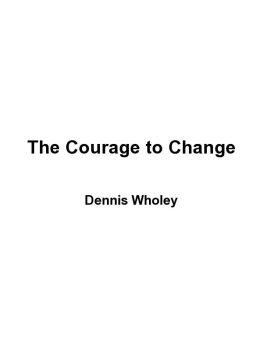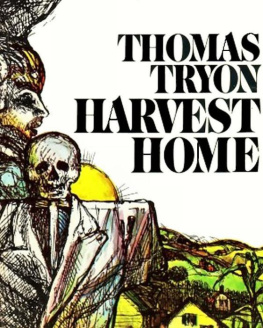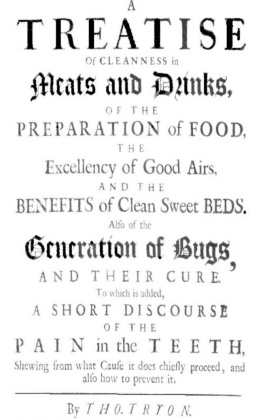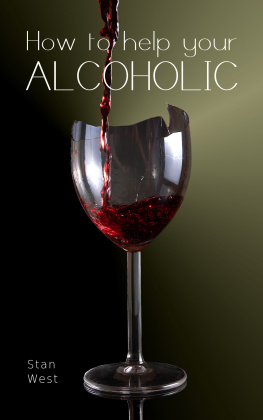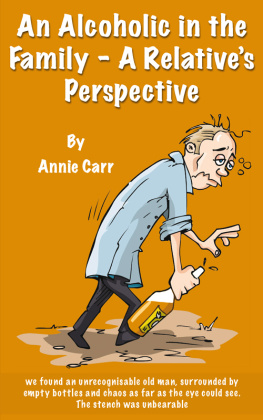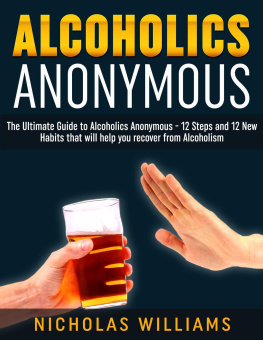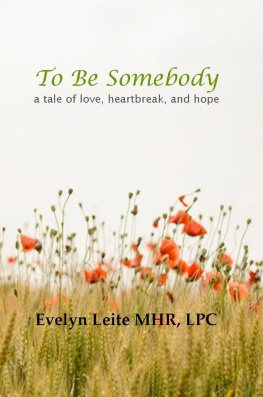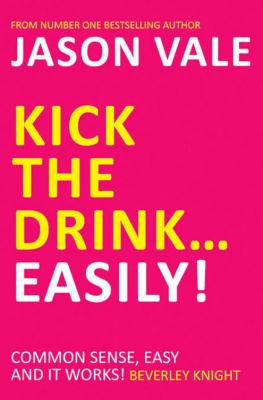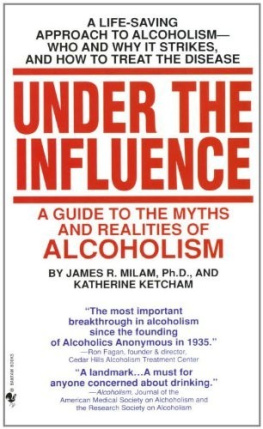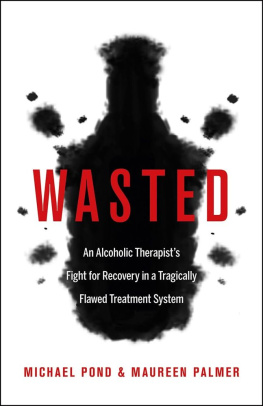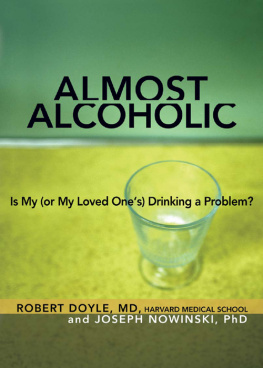Copyright 1984 by Dennis Wholey
All rights reserved. No part of this work may be reproduced
or transmitted in any form or by any means, electronic or
mechanical, including photocopying and recording, or by
any information storage or retrieval system, except as
may be expressly permitted by the 1976 Copyright Act or in
writing from the publisher. Requests for permission should be
addressed in writing to Houghton Mifflin Company,
2 Park Street, Boston, Massachusetts 02108.
Library of Congress Cataloging in Publication Data
Main entry under title:
The Courage to change.
1. AlcoholicsRehabilitationUnited StatesBiography.
I. Wholey, Dennis. II. Bauman, Robert E., 1937
HV5292.8.C68 1984 362.2'928 84-12979
ISBN 0-395-35977-5
Printed in the United States of America
P 10 9 8 7 6 5
The author is grateful for permission to quote from the book Unknown Man No. 89 by
Elmore Leonard. Copyright 1977 by Elmore Leonard. Reprinted by permission of
Delacorte Press.
Dedication
This book is for my mother and father,
for my sisters, Ann and Nora,
and for my brothers, Tim and Skef.
Acknowledgments
My sincere thanks go to the participants in The Courage to Change who gave so freely of themselves and welcomed me into their homes. It is their book as wella collective effort.
I am also grateful to Dr. Rob Roy McGregor, who opened the door into the publishing world for me and guided me to Austin Olney at Houghton Mifflin. Michael Medved played a key role, with his enthusiasm for the project at the right time, by introducing me to Arthur and Richard Pine. Over the months I have continually leaned on Richard for his professional expertise and enthusiasm. My very good friend and confidant, Paul Kasper, has kept me on an even keelthrough all the highs and lows of this book as well as life. David Dodd, who handled all of the research and checked the transcripts, has been constantly involved in the book-making process. His professionalism and good humor in taking care of a hundred and one other thankless "things to do" reflect his commitment to this book.
I have the deepest appreciation for the heroic efforts of Yvette Mandell, who transcribed thousands of pages of tapes, handled my correspondence, and coordinated the efforts of others at the word processors, especially Ray Tess, Robin Thompson, Judy Garry, and Michelle Mikulec. Mel Niser, who heads AAA Typing, let his staff meet my deadlines. Thanks also to Patty Steeby for her assistance when the crunch was on, and to Leonore Bechtel, who helped me with the original presentation. Sharon Kraft came through at the eleventh hour, and Lori Andiman made sure that Richard Pine and I always talked.
At Houghton Mifflin my sincere thanks go to all who have played a part in the creation of this book, especially Austin Olney for his commitment to the idea from the beginning. He has repeatedly placed the concept of producing a good book over selling books. I also appreciate his sensitivity to me as a first-time author, and as a human being. Larry Kessenich has made an outstanding contribution in organizational suggestions and making the book more readable. Geraldine Morse, Virginia Ehrlich, Helena Bentz, Jessie Dorin, Steve Lewers, Tira Nelson, Louise Noble, Bob Overholtzer, and Steve Pekich all helped, too. The editorial board of Houghton Mifflin should be confident that their decision to publish The Courage to Change will help many people. At WTVS, I appreciate the enthusiasm for this project by our boss, Bob Larson.
At "LateNight America" I want to thank Bill Pace, Dianne Hudson, Jan Zap Jungquist, Carole Gibson, Karen Melamed, Deborah Maldonado, Clark Attebury, Jeff Kirk, Carlota Almanza, Andrea Amato, Barbara Diggs-Berry, and especially Jack Caldwell and Henrietta Fridholm, who, probably without realizing it, have helped me to grow. A special thank-you to three friends who have died along the way but contributed greatly to my sobrietyGeorge Lahodney, Thad Gaillard, and Joe Mulqueen.
On a very personal note, I thank all of the members of my extended family for their encouragement and support, and Scott Murphy, Michael Murphy, Jack Conn, and Dr. Lonnie MacDonald. They all have an extra special place in my life.
Many other people, of course, have let me be me throughout the years and walked the journey with me. I thank them all.
Foreword
Gordon MacRae has distinguished himself in every area of show business: film, radio, television, nightclubs, recordings, and theater. He has starred in more than twenty films, including the legendary Oklahoma and Carousel. He and his wife, Elizabeth, and their daughter divide their time between Lincoln, Nebraska, and Beverly Hills, California. In addition to his countinuing work in theater, nightclubs, and concerts, Gordon is actively involved in alcoholism prevention and education.
You have in your hands a very exciting and important book. What you will read will make the disease of alcoholism very real and very personal. Alcoholism affects millions of Americansnot only the drinkers but their families, close friends, and co-workers, too. This collection of firsthand experiences by the well known and the anonymous is powerful. These self-revealing stories are not only open and honest, they are inspirational.
I am an alcoholic myself, so I understand alcoholism on a very personal level. I was there once myself, so I know the feelings of torment and despair.
All of the contributors in this book offer their hope, help, and expertise unselfishly. They do this so that others may be led out of their suffering and find happiness.
Those who have lived through the nightmare of alcoholism and come out the other side want to help others who still hurt. We know lectures, threats, and even punishments never seem to work with those caught up in alcoholism.
What has worked, and what is presented here, is one alcoholic telling his or her story to another alcoholic and one family member of an alcoholic telling his or her story to another family member of an alcoholic. This sharing at gut level is the most successful way of changing alcoholic lives, and identification plays the key role.
The message in this book to the drinking alcoholic is: Recognize yourself in these stories and get help. If you think you have a drinking problem, you doand it will get worse.
The message to the family member or friend of the alcoholic is: You are paying a tremendous price for living with alcoholism, and you may be contributing to your alcoholic's drinking. You don't have to live the way you are living. Seek help for yourself. A change in your attitudes and behavior will ultimately affect the alcoholic, who then may seek help.
The message to the general public is: Understand that alcoholism is a physical, mental, emotional, and spiritual disease. Alcoholics are not bad or weak people. Alcoholics are sick people who desperately need to get well.
In my work for the National Council on Alcoholism I have been encouraged by recent steps forward to inform and educate the public about alcoholism and to smash away the stigma of alcoholism.
This book will help greatly in that process.
I congratulate all of the contributors to The Courage to Change. Their willingness to place themselves on the linewith the only motivation to offer help and hope to those who need itis extraordinary.The Courage to Change brings out the very best in all of us.
It is easy to say good words about a book that will change people's lives in a dramatic and positive way.
I am proud to play a role in this effort.
Gordon MacRae
Honorary Chairman
National Council on Alcoholism
Next page
